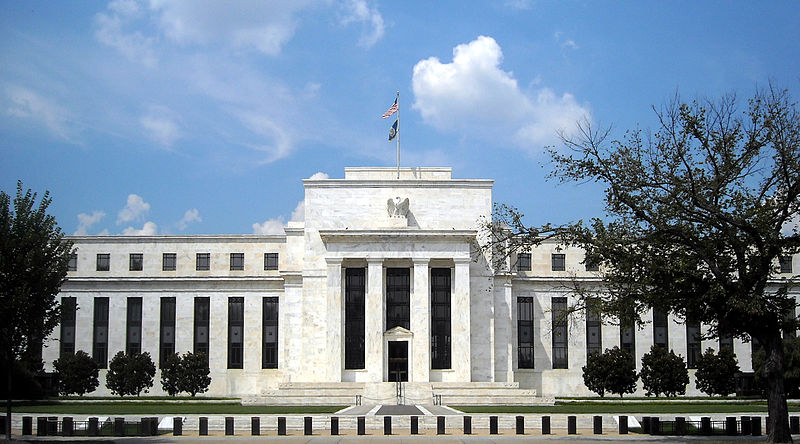 POLICY
POLICY
 POLICY
POLICY
 POLICY
POLICY
Three U.S. federal bank regulatory agencies have issued a joint statement highlighting the risks of crypto-asset risks to banking organizations.
The statement, issued today by the Board of Governors of the Federal Reserve System, the Federal Deposit Insurance Corporation and the Office of the Comptroller of the Currency, describes key risks associated with crypto-assets and the crypto-asset sector, “as demonstrated by the significant volatility and vulnerabilities over the past year.”
Anyone who follows cryptocurrency or has ever seen a news story about FTX — and aside from the pandering posts in the New York Times, it’s obvious that 2022 was not a great year for cryptocurrency. Not long after bitcoin was created, hating cryptocurrency became a thing, but the biggest problem with the broader crypto market is that it’s full of scammers and that’s the broad motivation behind the joint statement.
The joint statement highlights the risks to banking organizations of being involved in crypto. Though the agencies are not banning banks from dealing with crypto asset holders and companies, it’s implied that they should avoid crypto entirely.
The risks listed in the statement include the risk of fraud and scams among crypto-asset participants. Legal uncertainties related to custody practices, redemptions and ownership rights, some of which are currently the subject of legal processes and proceedings, come in at second place.
The third warning is inaccurate or misleading representations and disclosures by crypto-asset companies. They include misrepresentations regarding federal deposit insurance and other practices that may be unfair, deceptive or abusive, contributing to significant harm to retail and institutional investors, customers and counterparties.
The fourth warning is “significant volatility in crypto-asset markets, the effects of which include potential impacts on deposit flow associated with crypto-asset companies.” When the FDIC bans exchanging the U.S. dollar for South American currencies, which, at times, have the same problem, then that point can be taken more seriously.
The susceptibility of stablecoins to “run risk, creating potential deposit outflows for banking organizations that hold stablecoin reserves” is next on the list. So-called stablecoins are meant to be tied to physical assets, usually U.S. dollar reserves. But going back to the cryptocurrency business is full of scammers, over the last several years one supposed USD-linked stablecoin after another has fallen by the wayside.
The joint statement warns of a contagion risk within the crypto-asset sector resulting from interconnections among certain crypto-asset participants, including through opaque lending, investing, funding, service and operational arrangements. In related news, FTX founder Sam Bankman-Fried has pleaded not guilty to multiple charges in New York. Without naming FTX, the point refers to the relationship between FTX and Alameda Research.
Despite the rise of venture-capital-backed and occasionally public crypto companies, the statement then warns that risk management and governance practices in the crypto-asset sector exhibit a lack of maturity and robustness.
Finally, the joint statement claims that there are heightened risks associated with open, public or decentralized networks, or similar systems. The risks include the lack of governance mechanisms establishing oversight of the system, the absence of contracts or standards to clearly establish roles, responsibilities and liabilities, and vulnerabilities related to cyber-attacks, outages, lost or trapped assets and illicit finance.
“It is important that risks related to the crypto-asset sector that cannot be mitigated or controlled do not migrate to the banking system,” the joint statement warns. “The agencies are supervising banking organizations that may be exposed to risks stemming from the crypto-asset sector and carefully reviewing any proposals from banking organizations to engage in activities that involve crypto-assets.”
Despite the fact that at this point in the statement that it’s clear as day that the three agencies are warning banks to steer clear of crypto, it’s then sort-of denied.
“Banking organizations are neither prohibited nor discouraged from providing banking services to customers of any specific class or type, as permitted by law or regulation,” the statement reads. “The agencies are continuing to assess whether or how current and proposed crypto-asset-related activities by banking organizations can be conducted in a manner that adequately addresses safety and soundness, consumer protection, legal permissibility and compliance with applicable laws and regulations, including anti-money laundering and illicit finance statutes and rules.”
Three federal agencies issuing a joint statement is clearly a warning that crypto should be avoided by the very same banks they regulate. There was a point some years back when banks banned crypto, even down to disallowing users from transferring money to crypto accounts. Although the statement does not necessarily mean those days are returning, it’s an interesting coincidence that the statement comes after the United Nations called for crypto bans in August.
Support our mission to keep content open and free by engaging with theCUBE community. Join theCUBE’s Alumni Trust Network, where technology leaders connect, share intelligence and create opportunities.
Founded by tech visionaries John Furrier and Dave Vellante, SiliconANGLE Media has built a dynamic ecosystem of industry-leading digital media brands that reach 15+ million elite tech professionals. Our new proprietary theCUBE AI Video Cloud is breaking ground in audience interaction, leveraging theCUBEai.com neural network to help technology companies make data-driven decisions and stay at the forefront of industry conversations.